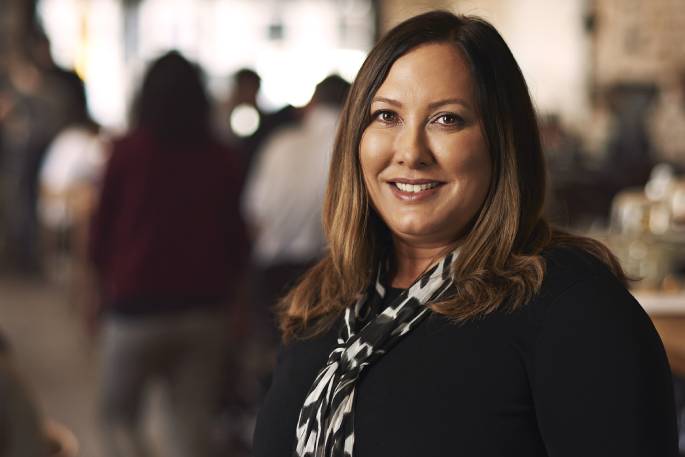During Alert Level 1, the Restaurant Association reported that the hospitality industry was struggling to recruit skilled labour and saw no increase in Kiwis applying for junior roles (The Weekend Sun, August 14).
The organisation, which represents cafe and restaurant owners throughout New Zealand, put worker shortages down to border closure.
It raised the question: why aren't Kiwis keen to work in hospitality?
The answer is no mystery to almost 30 current and former hospitality workers in the Bay Of Plenty, who responded to The Weekend Sun for comment.
Missing family
'Hospitality becomes your life – you are expected to work long hours for little pay,” says one respondent.
'If you need to take time off you are made to feel like you are letting the team down. There's no gratitude for surrendering family time for things like Christmas or birthdays.
'I missed 10 years of those precious memories to help someone's business grow. I've been out of the industry for two years now and my relationship with my spouse and family has enhanced.”
This was echoed by several other long-serving hospitality workers.
'I have been in the hospo Industry for about 12 years and I love the the atmosphere and the fast-paced nature of it,” says another.
'What I've found is that most places aren't very flexible with weekend days. I've been a single parent most of my son's life, and jobs turn you away if you can't be there both weekend days, or even if you can only make it every second weekend when the kids are at the other parents place.
'You work your fingers to the bone for minimal pay – it's not very appealing.”
Toxic environment
While some reported having great experiences with fellow staff and their employers, six respondents say they left the industry due to workplace bullying.
'I worked in a kitchen while I was studying culinary arts. They treated me so badly and made me feel so awful that I quit the job and gave up on the course,” says one.
'I loved my job, but I was bullied by the chef,” says another.
'Nothing was done about it, so I left.”
One says hospitality businesses supporting their staff would make other challenging parts of the job, like dealing with difficult customers, more manageable.
'Customers, like in any job, can be good and bad, but when a company doesn't give their employees the tools to do the best job they can but expect high standards, it becomes a joke.
And then there's COVID
After all of that, there's COVID-19 complications to add into the mix – which saw many hospitality workers lose their jobs.
'My hospitality job was awesome, because I got to work with a great team. But after losing my job due to COVID, I'm having to look for work in other industries,” says Scott Jones, a former kitchen hand.
'It's a shame, but it's a pretty uncertain time to go back into the industry.”
Others say that rosters have become even more of an issue during COVID-19.
'Due to COVID, my partner's employer says she has to work both weekend days, even though her contract is Monday to Friday. I work weekends already, so she looks after the kids on weekends.
'Even after trying to meet her employer half-way with alternatives, like working one weekend day, she was given an ultimatum to either work weekends or pretty much be fired. People in higher up positions don't work all weekend, but they expect their workers to – it's a joke.”
Times are tough for the hospitality industry, but that's no excuse for hospitality workers to be left out of the conversation, says hospitality rights organisation, Raise the Bar, founder Chloe Ann-King.
'We desperately need to hear from Kiwi hospitality workers about what it's actually like working the industry,” says Chloe.
'It's unsurprising that highly skilled hospo workers like myself no longer want to work in the industry.”
Restaurant Association responds
Restaurant Association CEO Marisa Bidois says that most of their members would empathise with the issues raised by Bay Of Plenty hospitality workers.
However, she says the concerns aren't unique to the hospitality industry.
'It's never nice to miss special occasions with family and most of our members will empathise with this.
'Work-life balance is not a unique challenge to hospitality either – it's a challenge in many professions and industries.
'We don't believe that the hospitality industry is more toxic than any others. We are a workplace and we operate under the same rules that govern all workplaces.
'Whilst small businesses do not have HR departments, we hear from many of our members that colleagues often become like extended family which makes our workplaces more communal and caring than many others. This is a culture that many larger workplaces can struggle to replicate. There will of course always be exceptions as there is in any industry.”
Marisa says COVID-19 has been a time for employers and employees to ensure they have 'really robust communication processes”.
'The COVID-19 pandemic has been tough for everyone.
'I've heard numerous stories about business owners moving out of their homes to rent or sell them so they can continue to keep everyone on the team employed.
'We hear more stories about owners working longer hours and picking up more shifts in the business to ensure that they can remain viable.
'As an association we work very hard to ensure hospitality businesses are sustainable, healthy businesses in all senses.
'Our members are those who take their employment responsibilities seriously and we are continually thanked for the resources and training materials we put together to help our members be the best they can be.”

